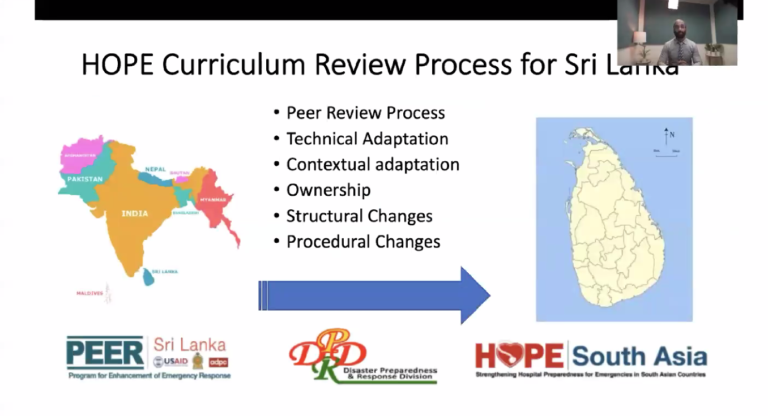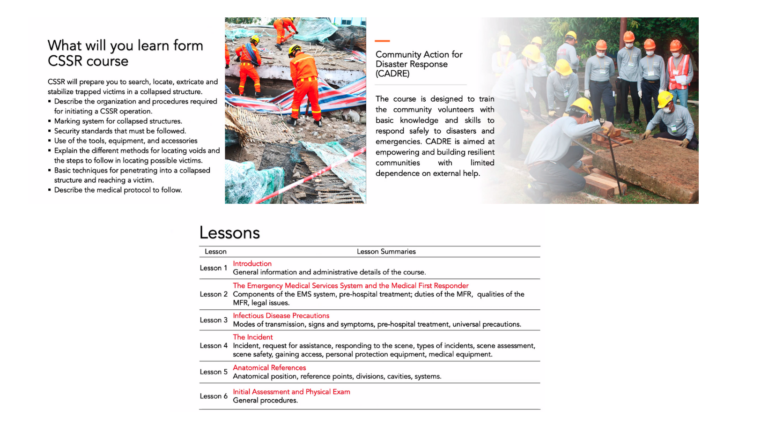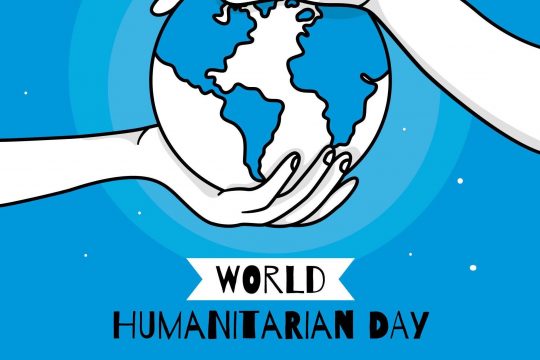On 27 October 2021 the Disaster Preparedness and Response Division of the Ministry of Health Sri Lanka organized a curriculum validation workshop in Colombo, Sri Lanka to validate and endorse the national standard Hospital Preparedness for Emergencies (HOPE) curriculum by national authorities for nationwide implementation of the course. Officials from Disaster Management Centre (DMC), representatives from regional and provincial hospitals, Disaster Preparedness and Response Division (DPRD) at the Ministry of Health (MOH), Direct General Health Services, members of HOPE Technical Curriculum Review Group, Partners from Sri Lanka Preparedness Partnership (SLPP), PEER alumni, and the Asian Disaster Preparedness Center (ADPC) members participated in the workshop.
Dr. H.D.B. Herath, National Coordinator (Health Sector DM), MOH opened the session with welcome remarks. John Abo, Chief of Party, PEER introduced PEER and walked through the objectives of the workshop. He emphasized the need to institutionalize PEER to develop a sustainable capacity-building program and added, “The pandemic has highlighted the various vulnerabilities of our society. Thus, we need to double our efforts to prepare and create a resilient society.”
Bandula Wickramaarachchi, Technical Specialist, ADPC gave an overview of the PEER courses and presented the evolution of PEER. Dr. Novil Wijesekara, DPRD, MOH, shared an overview of the HOPE course and curriculum review process for Sri Lanka. “Preparedness is linked with hospital safety and quality. We ensured that the curriculum fulfills the needs of the country.”

Commander D.H.K. Herath, Navy Liaison Officer, DMC presented the course overview of Community Action for Disaster Response (CADRE) course, followed by presentations on Collapse Structure and Search and Rescue (CSSR) and Medical First Responder (MFR) by Captain Sulochana Marapperuma, Air Liaison Office, DMC, and Captain H.N.S. Perera, Military Coordinator, DMC respectively.

The discussion ended with an open discussion on PEER institutionalization. All the participants contributed to the discussion and shared their suggestions. The recommendations made are as follows:
- Development of a comprehensive national strategy to institutionalize HOPE that includes target numbers, resources, partners, and entry points to be part of regular programs in hospitals
- Develop a recognition mechanism for trained hospital staff and hospitals on preparedness
- Engagement plan of trained personnel.


